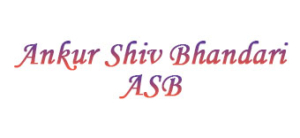From Shame to Fame: Turning Life’s Toughest Emotion into Your Strongest Power (12)
Shame is that uncomfortable feeling that tells us we are somehow not good enough. It is different from guilt, which is about what we did. Shame attacks who we think we are. It shows up when we believe we have failed, disappointed others, or simply not matched the invisible standards set by society. Sometimes it is earned through mistakes, but many times it is unfairly placed on us, even when our intentions and actions were right.
The trouble is that if you let shame move in and make itself at home, it quickly becomes a terrible houseguest. It lowers your energy, pulls down your consciousness, and before you know it, you are in a spiral of negative thoughts and feelings. It is like putting on noise-cancelling headphones tuned only to self-doubt. Progress feels distant, and opportunities slip by because you are stuck replaying the same mental soundtrack.
But shame might not the strong villain it first appears to be. When you step back and see it as just one of many emotions we will feel in our lives, it loses its power. It may be unpleasant, but it can also be the medicine that pushes us in the right direction. Sometimes the bravest move is to be a little shameless, as long as your intentions are honest. That shift from hiding to owning your story can be the start of a completely new future.
And here is where resilience is built. If your intentions are right and you face shame but learn to stand tall through it, you become unshakable. Very little can throw you off balance after that. This resilience is what sets the stage for real Fame, not the shallow kind measured in likes, but the deeper kind where people respect your strength and authenticity.
Look at The Pursuit of Happyness. Chris Gardner, played by Will Smith, endured moments that would break most people. Sleeping in a subway restroom with his son would make anyone feel humiliated. Yet instead of letting shame define him, he used it as fuel. His story proves that resilience through shame can lead not only to personal success but also to inspiring millions.
By learning to manage shame, you protect and even strengthen your mental health. You stop spiraling downward and start expanding upward. You gain perspective, clarity, and a stronger sense of self. That is the real prize.
So yes, your relationship with Shame can be the foundation of Fame. Not because shame feels good, but because overcoming it makes you ready for the spotlight that life has in store for you.
And while it might still feel a little taboo to talk about topics like shame, it is exactly these conversations that matter. Addressing them openly is how we strengthen individual mental health and move society forward in a positive direction.
❤️ASB









